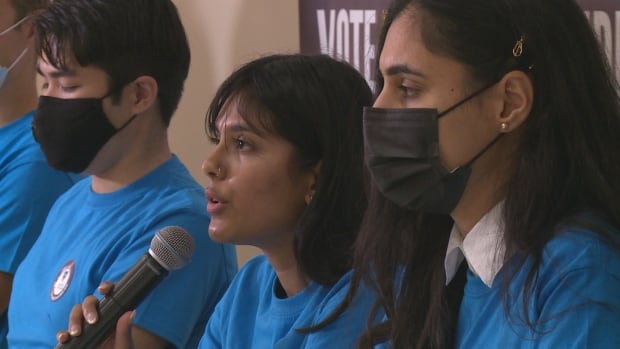University of Calgary students urge ‘Yes’ vote on fluoridation in fall election

Some University of Calgary students are urging other students to vote in favour of restoring fluoride in the city’s drinking water in this fall’s election.
Fluoride naturally occurs in some foods and is found in the Bow and Elbow Rivers at a concentration between 0.1 and 0.4 mg/L. Health Canada recommends water be fluoridated to a level of 0.7 mg/L to prevent tooth decay.
The city has said it saves about $750,000 a year by not adding fluoride to the water, and that reintroducing the costs would be added to the city’s water utility rate.
The plebiscite will be part of the municipal election on Oct.18. The student-run advocacy group, Fluoride: Pay it Forward, is advocating for a “Yes” vote.
Kurt Wilde, a second-year kinesiology student studying at the University of Calgary, is the campaign manager of the student initiative. He says he felt compelled to help younger Calgarians.
“There are many children that are experiencing and having to undergo very dangerous and very costly procedures and parents that are having to endure the stress of their children going through those procedures,” he said.
“We want to put an end to that. And the answer to that is having fluoridation in our water.”
Calgary discontinued its fluoridation program in 2011 but the debate has continued.
Now that it’s on the table again, Wilde says the group is specifically targeting students since they were likely to have grown up benefiting from the fluoride program.
“We’re living proof that fluoridation works and that it prevents dental decay and cavities. And so we’re reaching out to students because if you have benefited from fluoridation, you know the value and you know the scientific background that backs up fluoridation.”
Duaa Fatima, a third-year student in health and society at the University of Calgary, says she has been personally affected by not having fluoride in her drinking water — leading to two root canals and 20 fillings over the years.
“I spent my formative years with my teeth in Pakistan where there is no fluoridation, and I’m now reaping the consequences of that,” she said.
“Sometimes I have difficulty opening my jaw just because of the extensive work done on my teeth … this is not something I want to see in our future children and Calgarians.”
Opponents to fluoridation say fluoride is dangerous and that if people want fluoride they should just buy fluoridated toothpaste.


